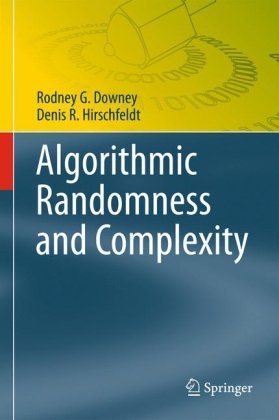|
Algorithmic Randomness and Complexity (Theory and Applications of Computability)
DISCLAIMER:This site does not store Algorithmic Randomness and Complexity (Theory and Applications of Computability) on its server. We only index and link to Algorithmic Randomness and Complexity (Theory and Applications of Computability) provided by other sites. Please contact the content providers to delete Algorithmic Randomness and Complexity (Theory and Applications of Computability) if any and email us, we'll remove relevant links or contents immediately. |
Books from NEWZ
Madeleine
Trick of the Dark Bride of New France Minding Ben Mr. Popper's Penguins New Round Up 2 SB CD-ROM Double Back The Dark Volume Dry Ice Missing Persons Holy Shit! Eslpod's English Cafe (with many Learnin... The Chronicles of Captain Blood The Girl Who Played Go Alexander and Alestria Winter Moon Thinking about Law: In Silence with Heid... ATTENTION, Volume 176 (Progress in Brain... Headwind The Brotherhood of the Holy Shroud Somersault Unbound Crush Depth Asking the Right Questions: A Guide to C... De Bono's Thinking Course, Revised Editi... |
Comments
 Comments (0)
All
Comments (0)
All
Popular searches










